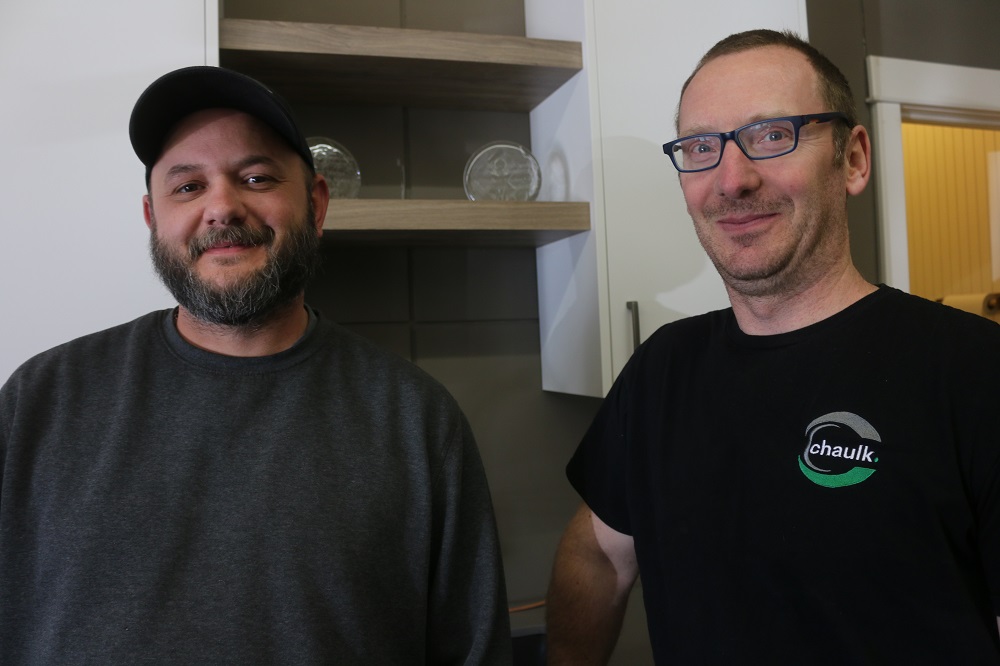When the idea of transitioning to a compressed, four-day work week was brought to him in early 2022, Trevor Chaulk didn’t think the idea would take off.
Fourteen months later, and business at Chaulk, a woodworking operation just outside Minden, has never been better.
“Probably the single best business decision I’ve made, certainly in terms of staff response,” Chaulk remarked. “We’ve seen noticeable increases in worker morale, we’ve been able to retain and attract staff in a hyper-competitive market, and our productivity has increased by over 25 per cent.
“I never would have thought it, but a fourday work week has been absolutely gamechanging for us,” he added.
Chaulk credits his operations manager, Rory Gray, with pitching the switch in late 2021. Together, they came up with a plan to split his workforce into two teams, one working Monday to Thursday, and the other Tuesday to Friday. The days are longer, with staff working 10-hour shifts, but the prospect of a long weekend, every weekend, more than makes up for that, Gray said.
“We’ve been doing this for over a year now and I haven’t received a single complaint. Having that extra day off has helped give our guys a chance to unwind… we’ve also noticed our sick days are down, people are showing up on time for shifts, the atmosphere in the shop is way better. Stress levels have been massively reduced now that our guys are able to spend more time at home with their families,” Gray said.
Two extra hours of work being tagged on
Despite a perception business hours would be reduced by such a move, the opposite has been true. Because of the split shifts, Chaulk has maintained five-day work weeks, with two extra hours of work tagged on each day, with Trevor noting it’s been a “win, win,” all around.
For Andrew Jennings, a recently-hired fabricator at the shop, having that extra day to himself was a big factor in choosing to work at Chaulk.
“My previous job was in construction, and that was five days a week, and very long hours. That sort of lifestyle just wasn’t working for me anymore, especially having a young family. I want to be around and spend as much time as possible with them, and working full-time across four days gives me the ability to do that,” he said. “I couldn’t imagine going back.”
The idea of a compressed work week seems to be gaining traction across the globe. Iceland was one of the first to investigate it and conducted a four-year pilot between 2015 and 2019 that saw 2,500 people go down to a four-day, 36-hour workweek. The program was so successful that, today, nearly 90 per cent of the nation’s working population enjoy reduced working hours or other accommodations, according to nonprofit Icelandic Association for Sustainability and Democracy.
Researchers from Cambridge University in England and Boston College in the U.S. conducted a study last year that found a compressed schedule significantly reduces stress and illness in the workforce.
Between June and December 2022, 61 companies and around 2,900 workers participated in the trial, with 39 per cent saying they felt less stress and 71 per cent reduced levels of burnout. Fifty-fix of the companies that participated said they are continuing with four-day working, with 18 confirming the policy is a permanent change.
Algonquin Highlands makes it permanent
Algonquin Highlands is one of a handful of municipalities across the country to embrace the practice. After completing a six-month pilot last year, the township transitioned to a reduced work week permanently in February. Staff have been split into two teams, alternating between working Monday to Thursday and Tuesday to Friday for their 35-hour work week.
“Staff have expressed a difference in… work-life balance, and morale. Everyone I’ve spoken to has said this new system has made a massive improvement to their life,” CAO Angie Bird said.
Bird noted the change has had a positive impact on staff retention and recruitment. Mayor Liz Danielsen said this was important, particularly given the troubles the township has had with hiring in the past.
“I think this puts us in a position to be a preferred employer,” she said.
Communications coordinator, Chad Ingram, said a compressed work week has enabled him to spend more time at home looking after his young daughters. Having to make one less trip into the office each week has also saved him money on gas and reduced his carbon footprint.
Mark Bell, president of the Haliburton Highlands Chamber of Commerce, commended Chaulk and Algonquin Highlands for taking a creative approach to staffing issues and encouraged other employers to follow suit.
“Businesses need to embrace these kinds of strategies. This is just one of the many options in the toolkit for employers to encourage and retain employees. It gives them added flexibility, and clearly, the results have been very positive,” he said.
Chaulk wishes he’d taken the leap sooner. After struggling for years to attract workers, he received 15 quality resumes this month after posting a job.
“Clearly, this thing works … I think anyone who can do this, and isn’t looking into it right now, is putting themselves behind the eight ball. It’s been magic for us. I couldn’t recommend it enough.”





